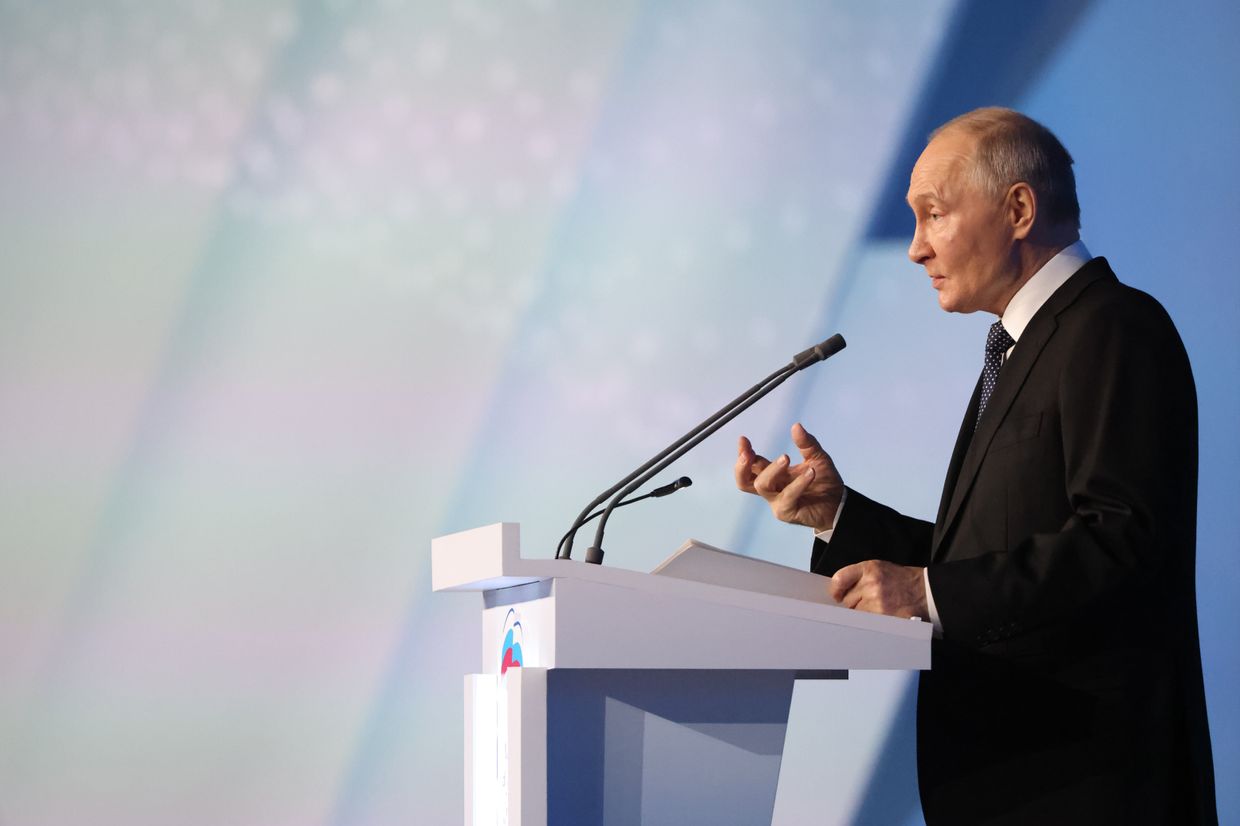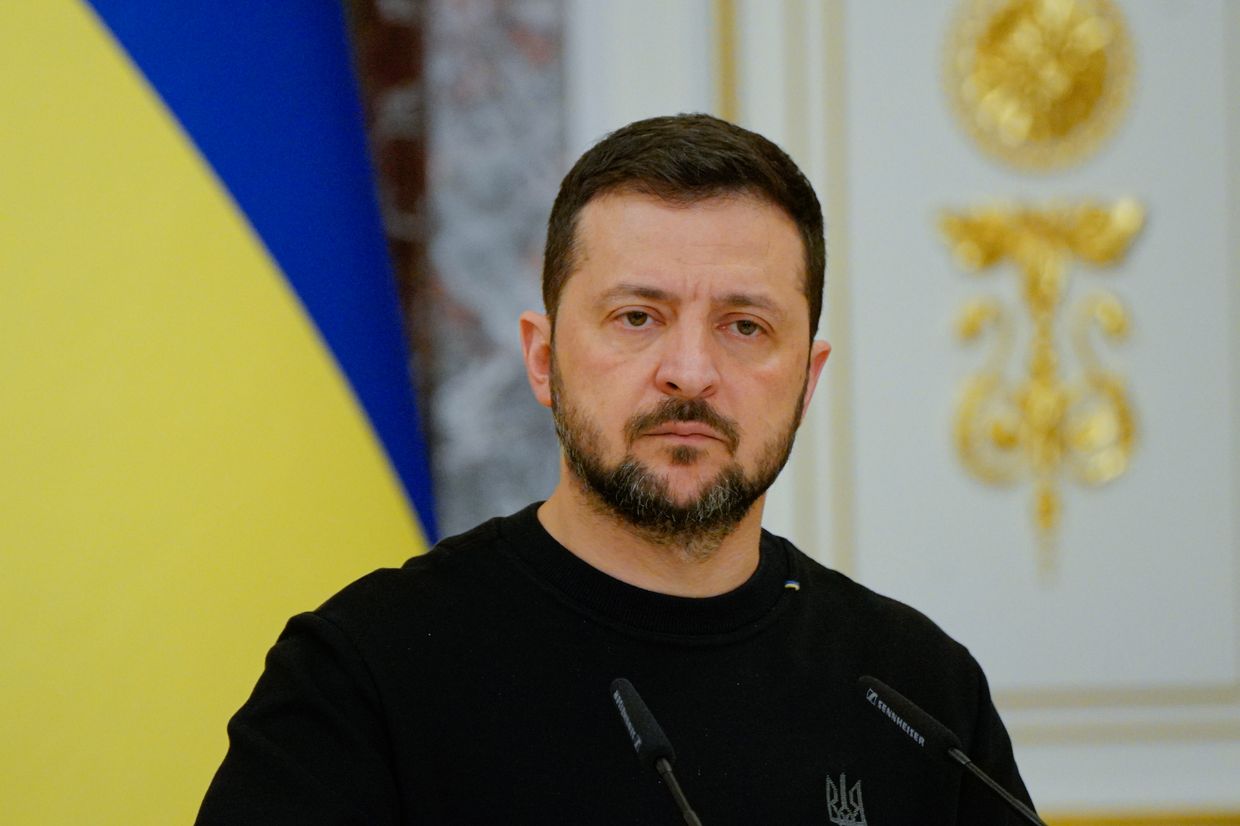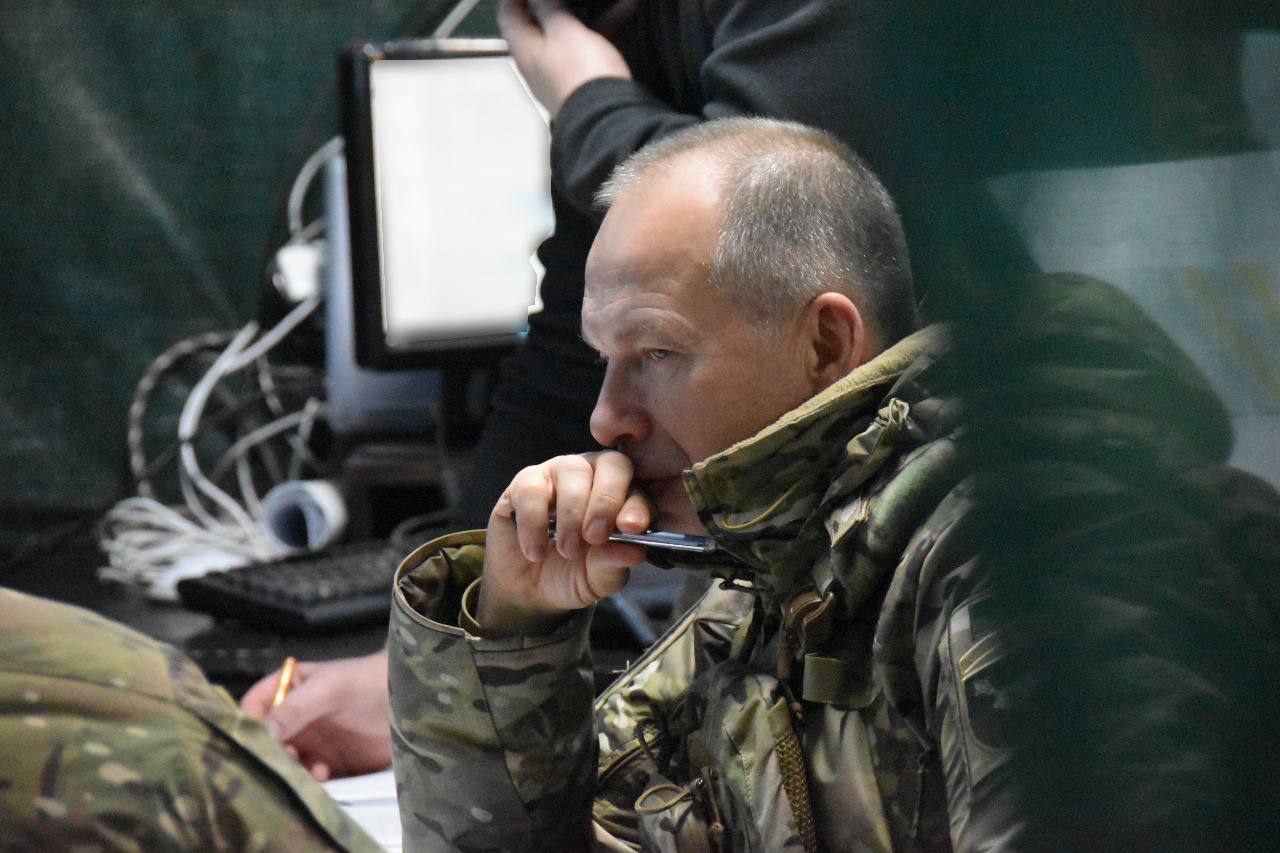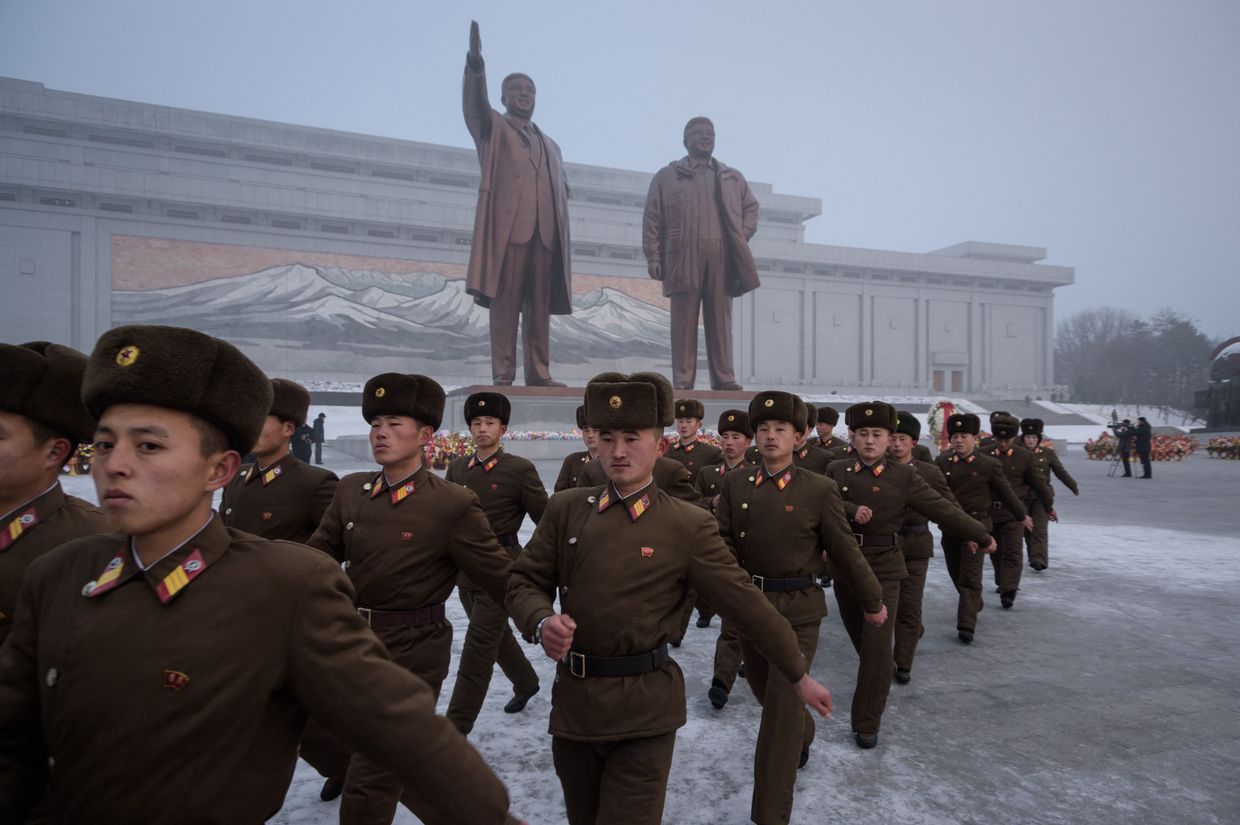Ukraine war latest: Zelensky blasts Putin’s Oreshnik threats, calling him ‘dumbass’

Key developments on Dec. 19:
- Zelensky blasts Putin’s Oreshnik threats, calling him ‘dumbass’
- Zelensky dismisses ceasefire as Putin’s ploy to regroup, seeks coordinated peace plan
- Ukraine strikes 'only oil refinery operating' in Russia's Rostov Oblast, military says
- Putin acknowledges sanctions have impact on Russia's economy
- Ukraine’s Special Forces report killing 12 North Korean soldiers in Kursk Oblast
At a press conference in Brussels on Dec. 19, President Volodymyr Zelensky blasted Russian President Vladimir Putin's recent threats of using the new Oreshnik intermediate-range ballistic missile (IRBM) against Kyiv to test Western air defense systems in what he called a "high-tech duel" with the West.
Putin proposed the "high-tech duel" during his annual press conference on Dec. 19. He suggested launching an Oreshnik at a site in Kyiv while challenging the West to deploy their air defenses to intercept it, claiming the missile was unbeatable.
"Do you think this is an adequate person? They are just thugs," Zelensky said while commenting on Putin's threats.
Later on, Zelensky published a video clip with Putin's suggestion about a "duel" on X, calling him a "dumbass."
"People are dying, and he thinks it’s 'interesting.' Dumbass," Zelensky wrote.
Putin's remarks followed his earlier threats to use Oreshnik missiles to strike at "decision-making centers" in Kyiv.
Russia first launched an Oreshnik at the city of Dnipro on Nov. 21. The strike was accompanied by a Russian propaganda campaign claiming the attack was carried out in response to the U.S. and U.K.'s decision to lift restrictions on Ukraine's long-range strikes inside Russia and aimed at undermining Western support for Kyiv.
Zelensky also commented on the 2022 Istanbul negotiations between Ukraine and Russia and Putin's peace proposal back then, dismissing them as a sham.
“He simply offered Ukraine to surrender, freeze the conflict, shift allegiance to Russia, and give up our independence,” Zelensky said.
“This person calls these some kind of agreements. He is just an old fantasist living in his own aquarium.”
The draft of the Istanbul agreement was published in full by The New York Times in June. According to it, both sides agreed to exclude Ukraine's Crimea from the treaty, leaving it under Russian occupation without Ukraine recognizing Russian sovereignty over it while the status of other Russian-occupied territories of Ukraine was to be decided in later talks between presidents Zelensky and Putin.
Ukraine offered to abandon aspirations to join NATO or any other military alliance, but the treaty allowed Kyiv to enter the EU. Russia also demanded the lifting of all sanctions, repealing Kyiv's laws related to language and national identity, and limiting Ukraine's Armed Forces.
Zelensky dismisses ceasefire as Putin’s ploy to regroup, seeks coordinated peace plan
President Volodymyr Zelensky said on Dec. 19 that American and European participation in possible peace negotiations with Russia is crucial while rejecting the idea of freezing the conflict.
Ahead of the anticipated U.S. President-elect Donald Trump’s focus on ending the war after his inauguration on Jan. 20, Zelensky expressed hope that Europe would be involved in the effort, sharing a strong, united stance.
Zelensky warned against granting Moscow a temporary break it seeks through a ceasefire, advocating instead for concerted international pressure to achieve an actual ending of Russia's war.
“We need coordinated work for a lasting peace, not just the suspension of hostilities that Putin seeks in order to buy time,” Zelensky said.
“We cannot live with a frozen conflict. When it comes to ceasefire, people know what comes after. How everything will end. You have to know what tomorrow brings in order to have a ceasefire.”
Zelensky also highlighted the role of the so-called Global South nations, including China, India, Saudi Arabia, and Brazil, in supporting Ukraine’s territorial integrity and influencing Russia.
He urged Europe to recognize and leverage these countries' potential to advance peace, noting their alignment with the principles of territorial sovereignty.
Reports of Trump’s intentions to end the war, potentially by pressuring Ukraine to cede territory to Russia or relinquish its NATO aspirations, have raised concerns among Ukraine supporters and in Kyiv.
Trump has repeatedly claimed he could end the war in “24 hours,” but he has not elaborated on his approach. On Dec. 12, he reiterated his belief that European troops should lead efforts to monitor any potential ceasefire, saying that Europe must assume greater responsibility in countering Russian aggression.
The EU, however, does not foresee negotiations or a ceasefire in the near future, according to a high-ranking EU official who spoke to the Kyiv Independent on Dec. 18.
Ukraine strikes 'only oil refinery operating' in Russia's Rostov Oblast, military says
Ukraine's Navy and the Security Service of Ukraine (SBU) carried out a combined strike against the Novoshakhtinsk oil refinery in Russia's Rostov Oblast overnight on Dec. 19, the General Staff of Ukraine's Armed Forces reported.
Russian authorities and Telegram channels reported explosions and fire at the facility earlier the same day, connecting it to a Ukrainian drone attack.
The Novoshakhtinsk facility is "the only oil refinery operating" in the region, the General Staff said. It reportedly produces up to 7.5 million tons of oil products annually and specializes in fuel production.
The city of Novoshakhtinsk lies around 10 kilometers (6 miles) from the Russo-Ukrainian border and over 200 kilometers (120 miles) from the front line.
Initially, SBU drones attacked the facility to distract Russian air defenses, providing a "window" for Ukrainian-made missiles to strike the facility, an SBU source told the Kyiv Independent.
The strike resulted in a massive fire and caused significant damage, the source claimed.
Yuri Slyusar, the acting governor of Rostov Oblast, said the fire had been extinguished as of 6:45 a.m. local time. One person was reportedly injured in the region due to falling drone debris.
The fire also affected the refinery's ELOU-AVT-2.5 catalytic cracking unit, according to the General Staff.
The Kyiv Independent could not immediately verify the claims.
Ukraine has previously targeted the Novoshakhtinsk oil refinery with drone strikes. The General Staff of Ukraine's Armed Forces claimed that a July attack on the refinery destroyed 1.5 million tons of oil and oil products worth $540 million.
The refinery partially shut down after an attack in March.
Ukrainian forces regularly target Russian oil depots in addition to attacks on weapons factories and military airfields. Fossil fuel exports are the primary drivers of the Russian economy and the main source of revenue for the Kremlin's war machine.
Putin acknowledges sanctions have impact on Russia's economy
International sanctions are affecting growing prices in Russia, but there are also shortcomings by Russian authorities, Russian President Vladimir Putin said during his annual press conference and a call-in program on Dec. 19, state news agency TASS reported.
Russian officials have largely dismissed the importance of Western sanctions imposed over the full-scale invasion of Ukraine, boasting about a strong and resilient economy.
While independent observers mostly agreed that the sanctions fell short of the desired effect, there are mounting warning signs regarding Russia's economy ahead of 2025.
"The sanctions are having an effect, but they are not of key importance," Putin said when talking about the surging inflation and prices in Russia. The country's annual inflation rate rose 9.2-9.3% while the ruble oscillates around 100 to the U.S. dollar.
Russia's central bank sought to curb inflation by instituting the highest interest rates – 21% – since the early 2000s.
According to Putin, inflation is driven by the supply not keeping up with the demand and the rising prices of some products globally. Many experts also connected the development to increased defense spending as Russia invests record sums in its full-scale war against Ukraine.
"Some experts believe that the central bank could have used tools unrelated to raising the key interest rate more effectively and earlier," Putin said.
"The central bank began doing this in the summer, but these experts believe this could and should have been done earlier."
The combined effect of sanctions and inflation is beginning to threaten the Russian economy in various sectors, including automotive, aviation, and retail. This development comes amid a growing push by U.S. President-elect Donald Trump to launch negotiations in Ukraine as soon as possible, though Moscow has shown little interest in peace talks.
Ukraine’s Special Forces report killing 12 North Korean soldiers in Kursk Oblast
Ukraine’s Special Operations Forces reported on Dec. 19 that they had killed 12 North Korean soldiers and injured 20 others, preventing their advance in Russia's Kursk Oblast.
Russia has reportedly deployed over 10,000 North Korean troops to help oust Ukrainian troops fighting in Kursk Oblast since early August.
Ukraine’s Special Operations Forces used drones and an Mk-19 grenade launcher to counter the North Korean soldier's attempt to advance, according to the released statement and video.
Ukraine's military intelligence agency (HUR) earlier reported that 30 North Korean soldiers were killed or injured during ground assaults on Dec. 14-15.
A total of at least 100 North Korean troops have been killed while fighting for Russia against Ukraine, a South Korean lawmaker said after an intelligence briefing, the BBC reported on Dec. 19.
The Kyiv Independent could not verify these claims.
The use of North Korean troops in Russia's ground operations was confirmed earlier in November, but their involvement has intensified recently.
Pentagon spokesperson Major General Patrick Ryder confirmed on Dec. 16 that North Korean soldiers were actively participating in combat operations alongside Russian troops in Kursk Oblast and had suffered their first casualties.
President Volodymyr Zelensky claimed that Russia was trying to conceal the extent of the losses among the North Korean soldiers.















